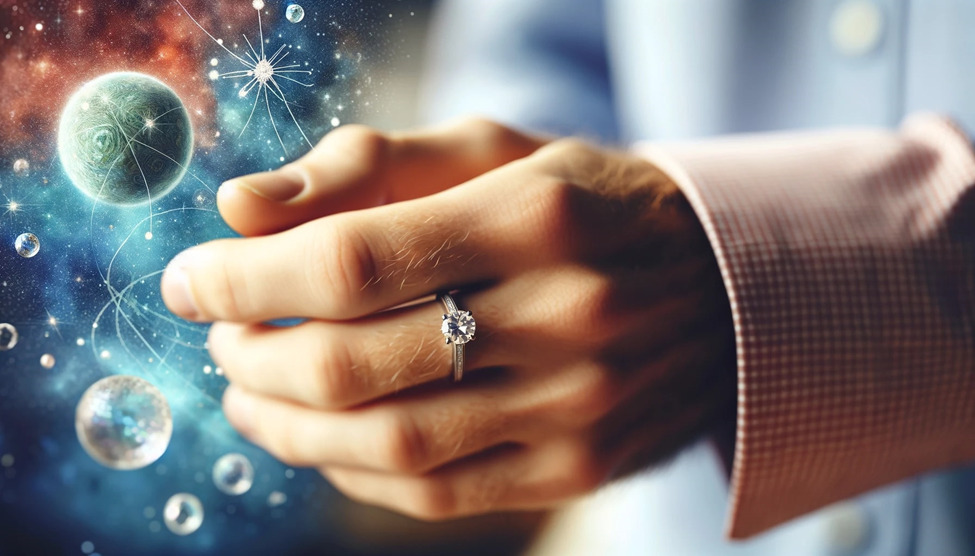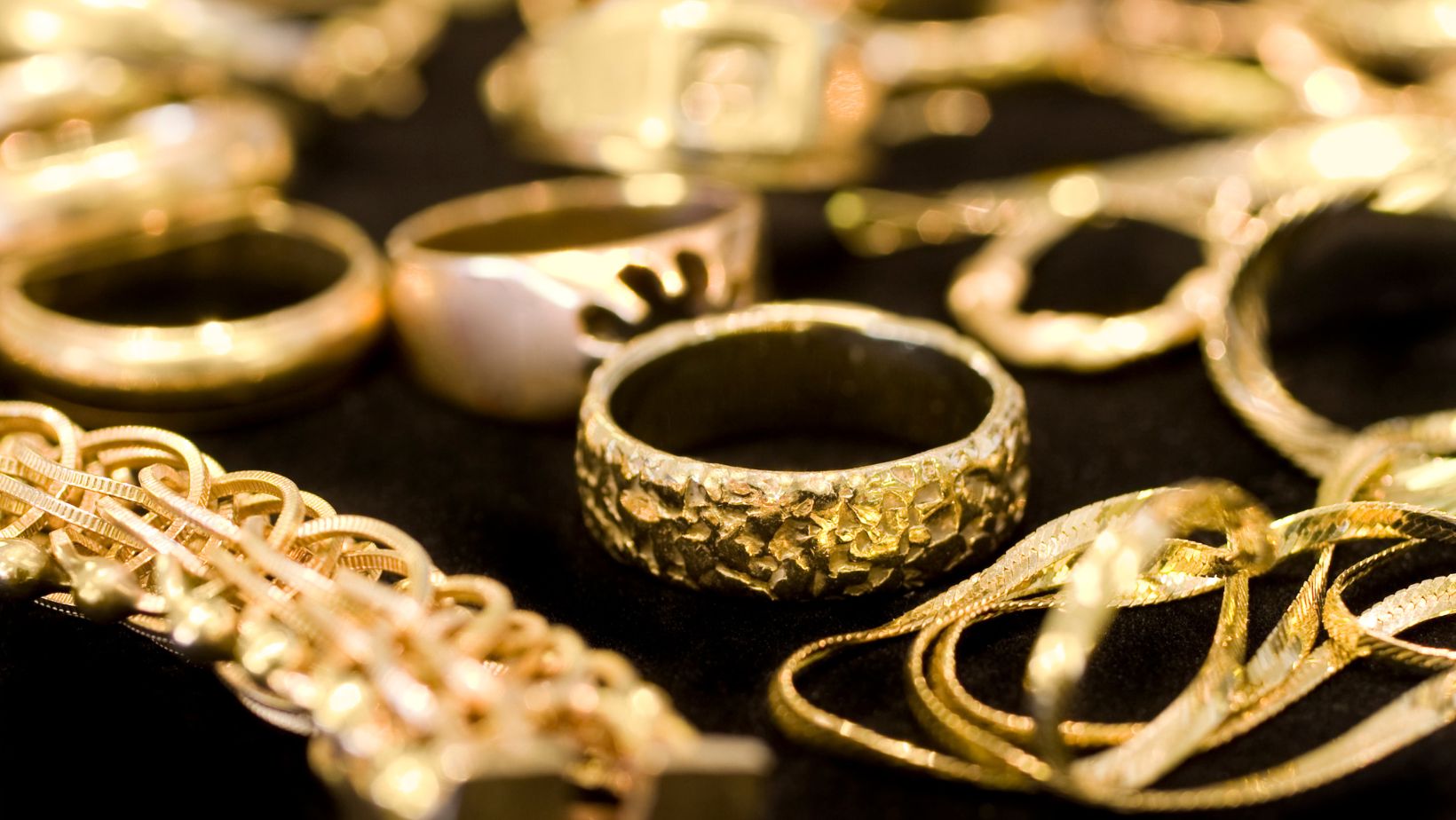As a professional jeweler with years of experience in the industry, I have witnessed a significant evolution in how ethical standards are not only upheld but championed within our field. Particularly in the wedding industry, where jewelry symbolizes love and commitment, the role of ethical practices becomes paramount. It’s essential for us, as jewelers, to lead by example, ensuring that the beautiful pieces we create are not only aesthetically pleasing but also ethically sourced and produced.
Table of Contents
Introduction
The wedding industry is a realm where emotions and values intertwine. As jewelers, we’re tasked with more than just selling a product; we’re providing a symbol of love and commitment. This responsibility makes it crucial for us to prioritize ethical standards in every aspect of our business. From conflict-free diamonds to sustainable gold sourcing, the choices we make have a profound impact on the global community and environment.
In recent years, consumers have become increasingly conscious of these ethical considerations. They seek not just beauty in their wedding jewelry but also integrity and responsibility. As an experienced jeweler, I’ve seen first-hand how maintaining high ethical standards can not only satisfy this growing consumer demand but also contribute positively to the global community and environment.
Key Takeaways
- Ethical Sourcing is Paramount: Knowing where and how the materials are sourced is crucial for ethical jewelry making.
- Consumer Awareness is Rising: Today’s consumers are more informed and concerned about the ethical implications of their purchases.
- Transparency Builds Trust: Being open about sourcing and production processes helps build consumer trust and loyalty.
- Sustainable Practices are a Responsibility: Adopting sustainable practices is not just good for business, but it’s our responsibility to the planet.
- Ethical Jewelry is a Growing Trend: The demand for ethical wedding jewelry is on the rise, making it a profitable and responsible business direction.
Historical Context of Ethics in Jewelry
The Past: The jewelry industry has not always been synonymous with ethical practices. Issues like conflict diamonds, exploitative labor conditions, and environmental degradation were once rampant.
The Shift: Over time, with increased awareness and global initiatives, there has been a significant shift. The introduction of the Kimberley Process and other regulations have helped curb these unethical practices to a large extent.
The Current Landscape of Ethical Jewelry
The ethical jewelry market today is characterized by the following:
● Conflict-Free Diamonds: Ensuring diamonds are sourced from conflict-free zones.
● Sustainable Materials: Using recycled gold and other sustainable materials.
● Fair Labor Practices: Ensuring fair wages and safe working conditions for artisans.
Table 1: Ethical Jewelry Practices
|
Practice |
Description |
|
Conflict-Free Diamonds |
Sourced from areas free of armed conflict. |
|
Sustainable Materials |
Use of recycled or responsibly mined metals. |
|
Fair Labor |
Ensuring safe and fair working conditions. |
Jewelers as Ethical Leaders
As leaders in the industry, we have the power and responsibility to set high ethical standards. This involves:
● Ethical Sourcing: Rigorous checks and balances to ensure ethical sourcing of materials.
● Consumer Education: Educating consumers about the importance and impact of ethical jewelry.
“As jewelers, our creations are not just products; they are a testament to our commitment to ethical and sustainable practices.”
Michael Vander Eyken, Gemologist and jewelry expert
Challenges and Opportunities
Challenges:
● Cost: Ethical sourcing can be more expensive.
● Market Competition: Competing with less ethical, cheaper alternatives.
Opportunities:
● Niche Market: Catering to consumers who value ethical practices.
● Brand Loyalty: Building a loyal customer base that values ethics.
Case Study: Barry’s Jewellers
Barry’s Jewellers serves as an excellent example of ethical practices in the wedding jewelry industry. Their commitment to ethical sourcing and sustainable practices sets a benchmark for others in the industry.
Table 2: Barry’s Jewellers Ethical Practices
|
Practice |
Description |
|
Sourcing |
Ethically sourced diamonds and materials. |
|
Transparency |
Open communication about sourcing. |
|
Community Support |
Supporting local artisans and communities. |
For more information on their ethical wedding jewelry collections, visit Barry’s Wedding Jewellery.
The Consumer’s Role in Promoting Ethical Jewelry
Consumers hold a significant influence in shaping the jewelry industry’s practices. Their choices and preferences drive market trends and can compel jewelers to adopt more ethical practices. When consumers prioritize and demand ethical jewelry, it sends a strong message to the industry, encouraging businesses to adopt responsible sourcing and production methods. This consumer-driven demand not only supports ethical businesses but also contributes to global efforts against unethical practices like conflict mining and exploitation.
Tips for Choosing Ethical Jewelry
Inquire About the Origin: When purchasing jewelry, especially pieces as significant as wedding rings, it’s essential to ask where the diamonds and metals were sourced. Ethically conscious jewelers should be able to provide this information, ensuring that the materials are conflict-free and sourced with minimal environmental impact.
Look for Certifications and Badges: Certifications such as the Kimberley Process for diamonds or Fairtrade Gold offer assurance that the jewelry meets specific ethical standards. Badges and certifications are a sign of a jeweler’s commitment to ethical practices.
Support Transparent Jewelers: Choose to buy from jewelers who are open about their sourcing and manufacturing processes. Transparency is key in the ethical jewelry market, and supporting these businesses helps promote the importance of ethical practices in the industry.
The Future of Ethical Jewelry in Weddings
Increased Demand: The trend towards ethical consumption is growing, and this extends to the wedding jewelry industry. Consumers are becoming more conscious of the ethical implications of their purchases, leading to an increased demand for jewelry that is responsibly sourced and produced. This trend is expected to continue as awareness of global issues and consumer responsibility grows.
Blockchain for Traceability: Blockchain technology is poised to play a significant role in enhancing transparency in the jewelry industry. It allows for the tracking of materials from the mine to the market, ensuring that every step in the supply chain meets ethical standards.
Lab-Grown Diamonds as Ethical Alternatives: Lab-grown diamonds are emerging as a popular alternative to traditionally mined diamonds. They offer a more sustainable and conflict-free option, reducing the environmental and human impact associated with mining. As technology advances, these diamonds are becoming more accessible and indistinguishable from mined diamonds, making them an increasingly popular choice for ethically-minded consumers.
The emphasis on ethical practices in the wedding jewelry industry is a positive step towards a more responsible and sustainable future. As consumers continue to drive this change and technology offers new solutions, we can expect to see a significant shift in how wedding jewelry is sourced, manufactured, and purchased.
Conclusion
The role of jewelers in promoting ethical standards in the wedding industry is crucial. It’s not just about meeting a market demand; it’s about doing what’s right. As professionals in this field, we have the power to influence and lead the industry toward a more ethical and sustainable future.
Remember, every piece of jewelry tells a story, and as jewelers, it’s our responsibility to ensure that the story is one of integrity and respect for people and the planet.
Author
Gustavo Rojero Herrera – Expert Client Advisor Watches & Jewelry
Brian, the dedicated Editor and Education Enthusiast at Faspe, is a dynamic force breathing life into the realm of education. Grounded in pedagogical expertise and fueled by boundless passion, Brian enriches the team with extensive experience, curating resources that inspire educators and students alike. His unshakable faith in the transformative power of education propels individuals to reach for the stars on their educational journey.







